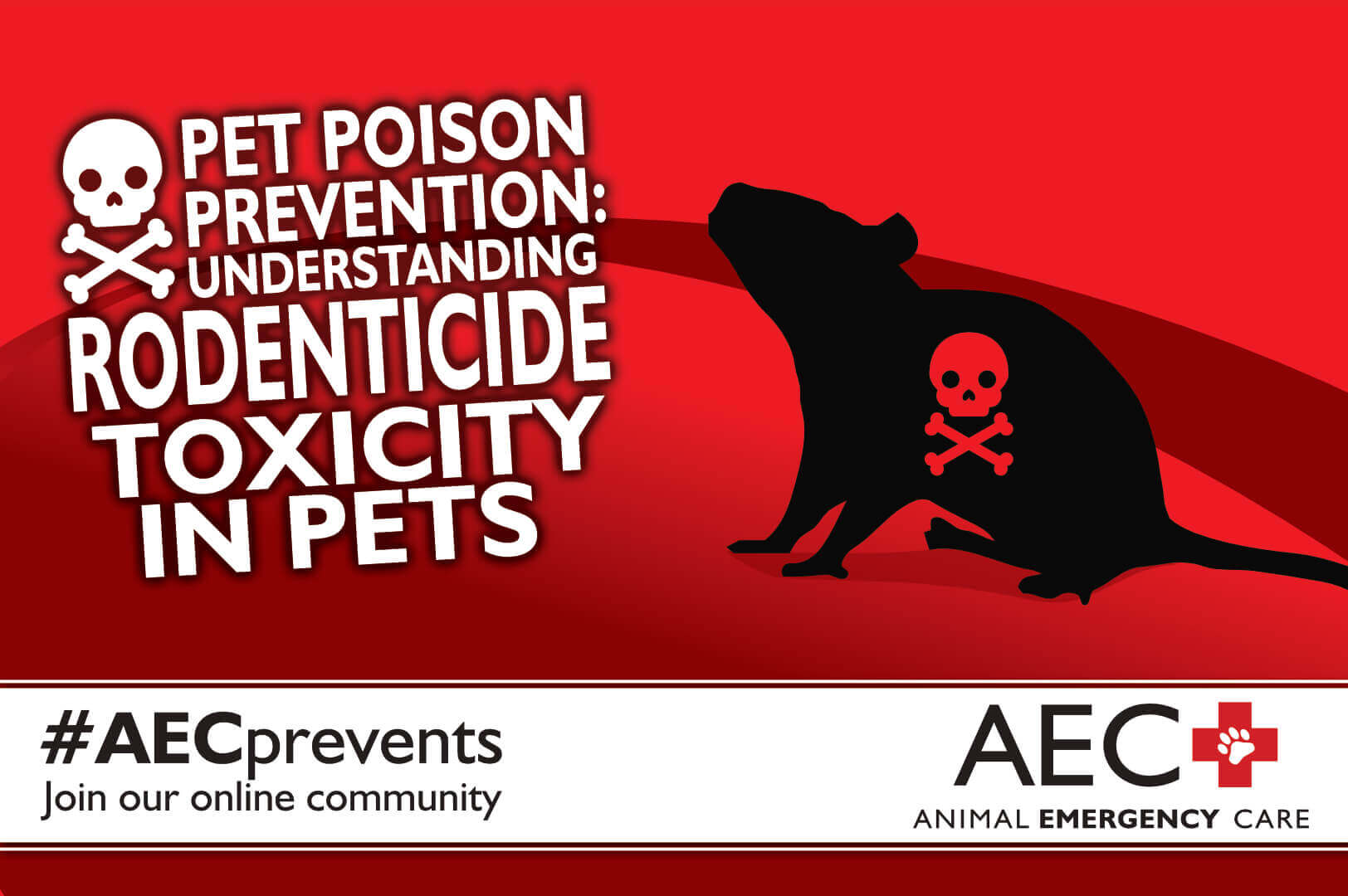Rats and mice have a long-standing feud with their human counterparts, and they often cause irritation by building nests in homes or attics or eating plants and gardens. Many people take matters into their own hands by purchasing commercially available rat poison or rodenticide from their local grocery or hardware store. Rodenticide is appealing to rodents and unfortunately domestic pets are not immune from its dangers. Rodenticide ingestion is a common cause of pet emergencies and is fatal without immediate and aggressive treatment. Our Animal Emergency Care team wants to ensure your pets are safe from this potentially deadly poisoning.
What is rodenticide toxicity in pets?
Many types of commercial rodenticides are available and all vary in toxicity and action mechanism but have the same goal of ridding homes and surrounding areas of rats or mice. However, the deadly effects of these dangerous poisons often affect more than rats and mice, including your pets. The toxic effects depend on the type and category of rodenticide that is ingested. Common rodenticides include:
- Anticoagulant —These include warfarin, brodifacoum, dopaquinone, and bromadiolone. Anticoagulant rodenticides are the most common type and they function to disrupt blood clotting in an animal by inhibiting the body’s ability to activate vitamin K reserves. This poison leads to widespread blood vessel destruction and bleeding.
- Non-anticoagulant — Bromethalin is the most commonly used poison in this category, and small amounts are deadly to rats or wildlife. Bromethalin disrupts the brain’s ability to oxygenate and leads to swelling and other neurologic problems. There is no antidote for bromethalin toxicity.
- Cholecalciferol — This poison produces excess calcium in the blood and leads to hardening of soft tissue throughout the body. Kidney damage can also occur.
- Zinc Phosphide — This poison is intended for outdoor use only, and is commonly used around farms. Ingestion causes the formation of a dangerous gas that leads to fluid accumulation in the lungs and the inability to breathe.
Rodenticide toxicity signs in pets
Clinical signs of rodenticide toxicity in your pet can take several days before they are obvious. Type and severity of signs will vary depending on the type and amount of rodenticide that was ingested and may include:
- Vomiting
- Diarrhea which may contain blood
- Bruising
- Pale gums
- Nose bleeds
- Hyperexcitability
- Depression
- Decreased appetite
- Weakness
- Rapid breathing
- Difficulty regulating body temperature
- Seizures
- Muscle tremors
- Bleeding in multiple body locations
- Hind limb paralysis
- Increased thirst and urination
Rodenticide toxicity diagnosis and treatment in pets
Immediately take your pet for emergency care if you suspect they have ingested any rodenticide. Diagnosing rodenticide toxicity without first-hand knowledge of ingestion and the type of poison can be difficult, and you must ensure you let your veterinarian know if there is any rat poison in or around your pet’s environment, whether or not you saw them actually eat anything. Diagnosis is based on history and clinical signs. Bringing the poison box or label to the veterinary clinic will help with a fast diagnosis and treatment plan. Pets who have been accidently poisoned will require hospitalization for treatment and prolonged observation. Treatment will depend on severity and type of poisoning and may include:
- Blood tests to determine clotting ability
- Blood tests to check for organ damage and anemia
- Advanced imaging (i.e., MRI, CT) to monitor for brain damage
- Intravenous fluids
- Specialized warming pads to regulate body temperature
- Heart and blood pressure monitoring
- Induction of vomiting
- Activated charcoal to absorb poison
- Anti-nausea medication
- Medication to control seizures
- Blood transfusions
- Vitamin K
- Gastroprotectants
- Feeding tubes
- Specialized diet
Financial options for rodenticide toxicity treatment in pets
Pets undergoing treatment for rodenticide toxicity may require an extended hospital stay and several follow-up appointments. This is because the lasting effects and respective treatment can span several weeks. This long-term care can be expensive but several financial options are available to cover treatment costs. Consider purchasing a health insurance plan like Trupanion before an accidental poisoning with your pet occurs. Other options such as Care Credit and Scratch Pay allow payments to be spread out over longer periods with delayed interest rates in some cases. You can also invest in a pet health savings account to ensure funds are available for your pet’s health care.
Rodenticide toxicity prevention in pets
Preventing access is vital to ensure your pet does not accidentally ingest any rodenticide. Humane traps are a safer alternative and do not involve placing any poison around your pet’s environment. You could also hire a professional exterminator if rodents have become unmanageable; a professional team should be able to develop a plan to remove the problem while keeping your pet family safe. Keep pets out of rooms or yards where poison is present and immediately remove any deceased rodents or wildlife.
Bring your pet for immediate care if you suspect they have ingested rodenticide or if they are showing rodenticide toxicity signs. Call your family veterinarian or bring your pet to Animal Emergency Care. Rodenticide toxicity can be fatal to pets and immediate treatment will give your pet the best chance of survival. #AECprevents
Sources:
https://veterinarypartner.vin.com/default.aspx?pid=19239&id=4952117
https://veterinarypartner.vin.com/default.aspx?pid=19239&id=8671284


